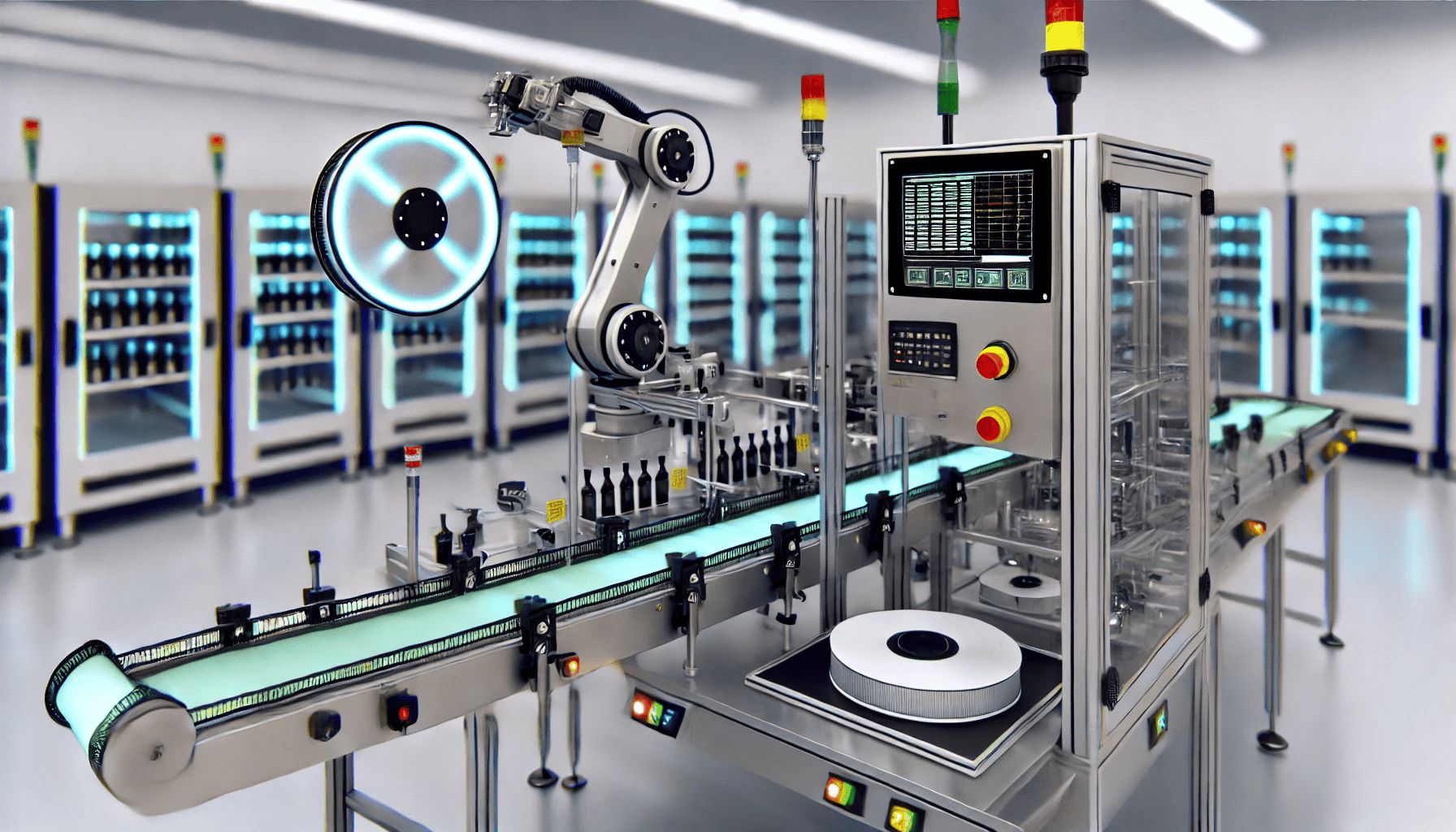The automatic labeling machine market is booming as industries seek to streamline their packaging processes. But what’s fueling this growth, and what are the key trends to watch? Let’s explore the factors driving the expansion of this market and its future prospects.
The automatic labeling machine market is expanding due to increased demand for efficient, accurate, and high-speed labeling solutions. Key drivers include advancements in automation technology, rising consumer expectations, and stringent labeling regulations. These factors are pushing manufacturers to adopt more sophisticated and versatile labeling systems.
As someone who’s been in the field for over 20 years, I’ve seen the evolution firsthand. It’s fascinating to witness how technological advancements are shaping this market.

Why is Automation Key in the Labeling Industry?
Automation plays a crucial role in the labeling industry by enhancing efficiency and reducing errors. With automated systems, companies can achieve consistent and accurate label placement, which is vital for maintaining product quality and compliance. Auto label machines can handle large volumes with minimal human intervention, saving time and labor costs.
In my experience, the shift towards automation is driven by the need for speed and precision. As production lines become more complex, the demand for versatile and reliable machines grows. Companies are looking for equipment that can handle different types of labels and packaging formats, adapting to changing market demands.
What Are the Main Types of Automatic Labeling Machines?
There are several types of automatic labeling machines, each designed for specific applications. The most common ones include pressure-sensitive labelers, sleeve labelers, and hot melt glue labelers. Pressure-sensitive labelers are versatile and can handle various label materials and sizes. Sleeve labelers are ideal for full-body labeling, offering a sleek and tamper-evident finish. Hot melt glue labelers are used for high-speed operations, providing a secure bond for labels.
Choosing the right machine depends on the product type, production volume, and labeling requirements. In my factory, we’ve used different machines for different products, ensuring optimal performance and efficiency. The key is to understand the specific needs of your production line and select the right equipment accordingly.
How is Technology Impacting the Market?
Technology is a major driver in the automatic labeling machine market. Innovations in robotics, artificial intelligence, and IoT are transforming how labeling machines operate. For instance, automatic labeling machine learning can optimize label placement and adjust machine settings in real-time, improving accuracy and reducing waste. IoT connectivity allows for remote monitoring and maintenance, enhancing machine uptime and efficiency.
Over the years, I’ve seen how these technological advancements have revolutionized the industry. Modern machines are more intuitive, offering user-friendly interfaces and advanced diagnostics. This not only simplifies operation but also helps in identifying issues before they become major problems.

What Are the Regulatory Considerations?
Regulatory compliance is a significant factor in the automatic labeling machine market. Different industries have specific labeling requirements, from food and beverages to pharmaceuticals and cosmetics. These regulations dictate the information that must be included on labels, such as ingredients, nutritional facts, and expiration dates.
In my experience, compliance is not just about avoiding fines; it’s also about building consumer trust. Accurate and clear labeling helps customers make informed decisions and ensures product safety. Investing in reliable labeling equipment is crucial for meeting regulatory standards and maintaining brand reputation.
How is the Market Adapting to Consumer Trends?
Consumer preferences are constantly evolving, and the automatic labeling machine market must adapt accordingly. Today’s consumers are more conscious about sustainability and transparency. They want to know where products come from and how they are made. This trend has led to a rise in eco-friendly packaging and labels, driving demand for machines that can handle sustainable materials.
In my two decades in the industry, I’ve noticed a growing interest in digital printing technologies. These technologies allow for more personalized and dynamic labels, catering to niche markets and limited editions. As consumer demands continue to shift, the market must remain agile and responsive.
What Are the Challenges in the Market?
Despite the growth, the automatic labeling machine market faces several challenges. One of the main issues is the high cost of advanced machinery, which can be a barrier for small and medium-sized enterprises. Additionally, the rapid pace of technological change requires continuous investment in training and equipment upgrades.
From my perspective, another challenge is the integration of labeling machines with existing production lines. Compatibility issues can lead to inefficiencies and downtime. It’s essential to work with experienced manufacturers and suppliers who can provide customized solutions and support.
What is the Future Outlook?
The future of the automatic labeling machine market looks promising, with continued growth expected. Advancements in technology and increasing demand for automation will drive market expansion. The rise of e-commerce and the need for efficient packaging solutions will also contribute to this trend. As companies seek to differentiate their products and improve sustainability, the demand for innovative labeling solutions will continue to rise.
Looking ahead, I believe the market will see more integration of smart technologies, such as machine learning and data analytics. These innovations will enable more precise and efficient labeling processes, reducing costs and improving product quality.
Conclusion
The automatic labeling machine market is on an upward trajectory, driven by technological advancements, regulatory requirements, and changing consumer preferences. As someone with extensive experience in the field, I’m excited to see how the market evolves and the new opportunities it presents. Investing in the right equipment and staying ahead of trends will be key to success in this dynamic industry.Automatic Labeling Machine Market Growth Drivers









